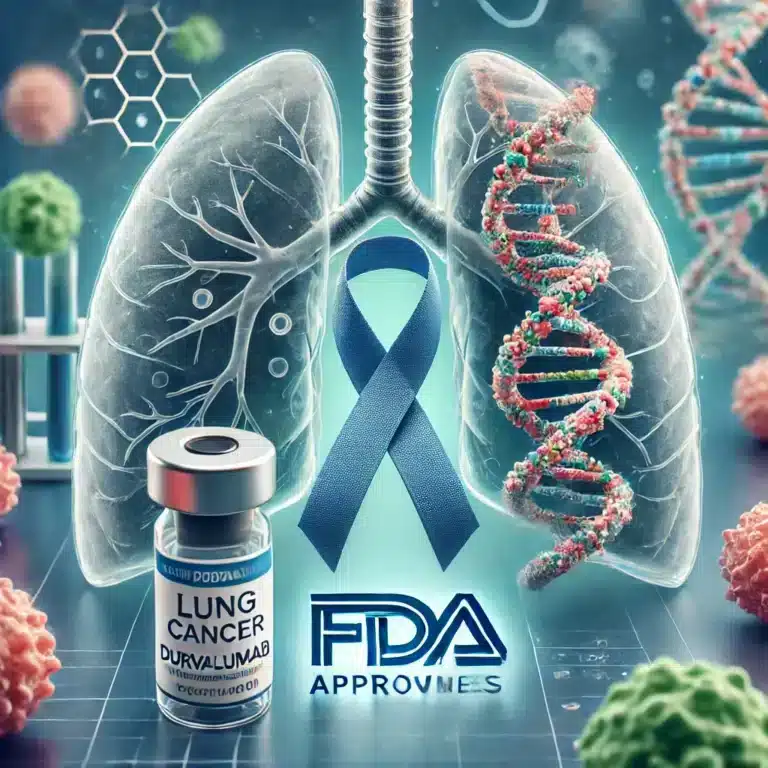Summary
- On August 15, 2024, the FDA approved durvalumab (Imfinzi, AstraZeneca) for adults with resectable non-small cell lung cancer (NSCLC).
- Patients must have tumors ≥ 4 cm and/or be node positive without known EGFR mutations or ALK rearrangements.
- The drug was approved for neoadjuvant treatment with chemotherapy, followed by adjuvant treatment after surgery.
- Clinical trials showed improved event-free survival and a higher pathological complete response rate with durvalumab.
- Common side effects include anemia, nausea, fatigue, and musculoskeletal pain, but the drug showed promising efficacy and safety in trials.
In a significant development for the treatment of non-small cell lung cancer (NSCLC), the Food and Drug Administration has approved the use of durvalumab (Imfinzi) in combination with platinum-containing chemotherapy as neoadjuvant treatment, followed by single-agent durvalumab as adjuvant treatment after surgery. This approval is specifically for adults with resectable NSCLC (tumors ≥ 4 cm and/or node positive) who do not have known epidermal growth factor receptor (EGFR) mutations or anaplastic lymphoma kinase (ALK) rearrangements.
The approval was based on the findings from a clinical trial (AEGEAN) conducted in 802 patients with previously untreated and resectable squamous or non-squamous NSCLC. Efficacy outcomes showed improved event-free survival and pathological complete response rates in patients receiving durvalumab compared to those receiving a placebo. The most common adverse reactions reported were manageable, with the recommended dosage for durvalumab established based on body weight. Healthcare professionals are encouraged to report any suspected adverse events to the FDA’s MedWatch Reporting System for further evaluation and follow-up.
Oncology,Pulmonary MedicineFDA – Food and Drug Administration, neoadjuvant, adjuvant, durvalumab, resectable, non-small cell lung cancer


